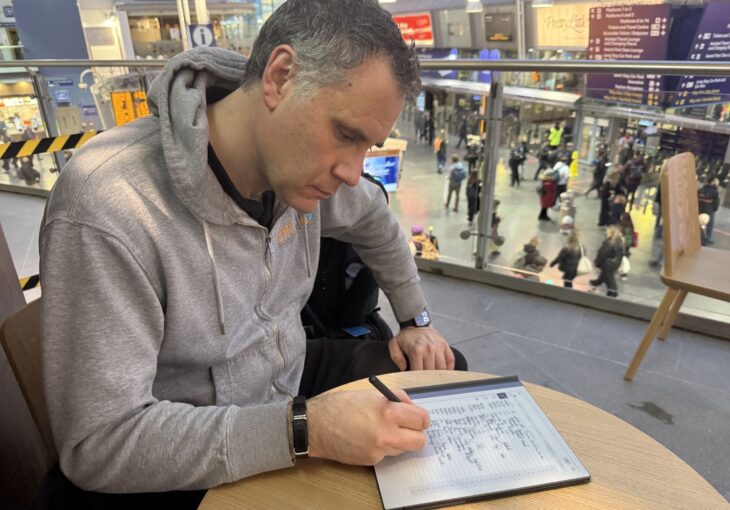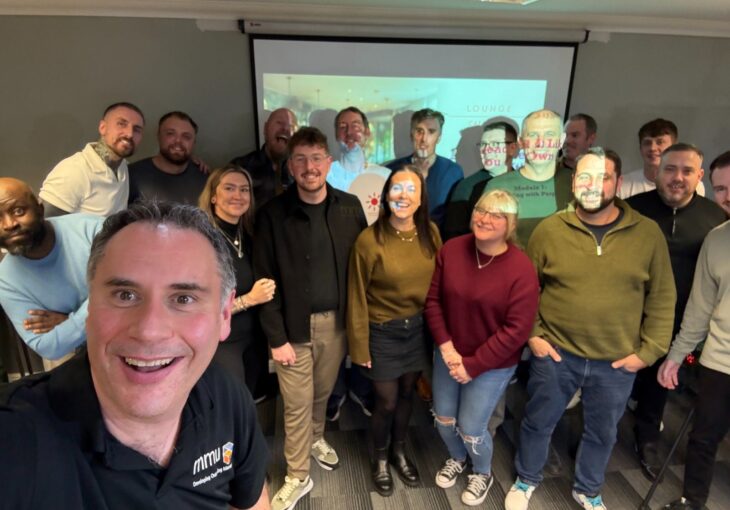

Performance Conversations
The last few days have given me the opportunity to reflect on the success of our recent event “Performance Conversations: Driving Operational Excellence.” There’s no doubt that the event was well received by those who attended, both in terms of the subject matter and the format of the evening. It was fantastic to see such a diverse group attend but I was especially pleased with how many multi-unit managers came along.
As we discussed during the evening these individuals are the key enablers for so many organisations. It is essential they appreciate that the frequency, quality and clarity of the conversations they have with their managers is integral to achieving consistent operational excellence.

Peter Davies, Head of Retail Operations, Starbucks UK
Our guest speaker, Peter Davies (Head of Retail Operations, Starbucks UK) made some insightful remarks regarding how important it is that multi-unit managers have trust and confidence in their management teams. The relationship between the managers is crucial and a conscious effort must be made to make these conversations truly effective. Luckily our event partners for the evening, Global Edge (www.theglobaledge.com) are experts in this area.
They define the importance of this two-way engagement and suggest three principles that underpin effective performance conversations, Know Me, Focus Me and Value Me. In the operational context multi-unit managers work in, I would interpret these as follows:
Know Me – take the time to show genuine interest in me, what my likes and dislikes are. What are my strengths and weaknesses? Understand and have empathy with me.
Focus Me – give me the appropriate direction (be that by giving me specific instructions or instead painting the bigger picture for me). Help me to understand my business and results, and provide clarity of purpose and meaning. I need to understand not just what needs to be done but also why?
Value Me – give me recognition and praise when appropriate. Let me see how I’m making a contribution to the achievement of the larger goals of the organisation.
For me, Peter’s core question was one which all managers and leaders should reflect on regularly. “Are we letting our results drive our behaviours or do our behaviours ultimately drive our results?”
Too often he said, a decline in sales or other key performance indicators, leads us to knee-jerk reactions. Sales are down so we hear managers are told to refocus their action plans on driving sales growth. Scratch the surface though and we find those well meaning statements are underpinned with little or no detail, and no appreciation of what behaviours need to be modified to achieve the desired result.
The detail and clarity needed in an action plan is in many ways no different to what is required in any conversation about performance, whether formally or informally conducted. It astounds me how many multi-unit managers assume their managers have understood what’s been discussed, let alone how often I observe conversations where action steps are agreed but nothing is written down.

Know Me. Focus Me. Value Me.
Just simply asking the manager at the end of a conversation, “Okay just summarise the key points you’re taking away from our discussion and confirm what actions we have (with deadlines)?” can have a profound effect on checking how clear the conversation has been.
Isn’t it better to find out there and then that they’ve misunderstood a point or missed it completely, than wait until the next meeting or call to discover this?
Looking at it from the MMU perspective, I feel we gave attendees a glimpse into the foundational activities which every multi-unit manager needs to master. We refer to these as the Critical Impact Activities (Analyse, Plan, Communicate, Observe, Develop and Review) and you can read more about them in an earlier blog here.
The main Critical Impact Activity we spoke about during the evening was effectively “Plan”, with the role play scenarios helping to illustrate how a multi-unit manager can coach their store manager to start delving into the detail of the goal:
• What is the measure of success? How many units are we selling and how many will we sell? What’s the cash value of that in terms of sales (and perhaps profit?).
• What time frames will this be done in?
• What are the steps that need to be taken to achieve it? If training is needed, who needs to be trained? Who will carry out that training? Over what timeframe?
• What other resources might be needed? Budget, people’s expertise?
• Who will own each step? Again, when will each one be done?
This might feel hard to do at first but by the multi-unit manager asking those questions (and waiting to see if the manager can identify the answers) they are ultimately coaching their manager to think through these questions and issues for themselves.
Finally, at formal one-to-one meetings, ad-hoc calls or visits, whether reviewing key performance indicators or personal development plans, the same principles apply.
The frequency, quality and clarity of communication is the critical ingredient to achieving successful performance conversations.

Performance Conversations


